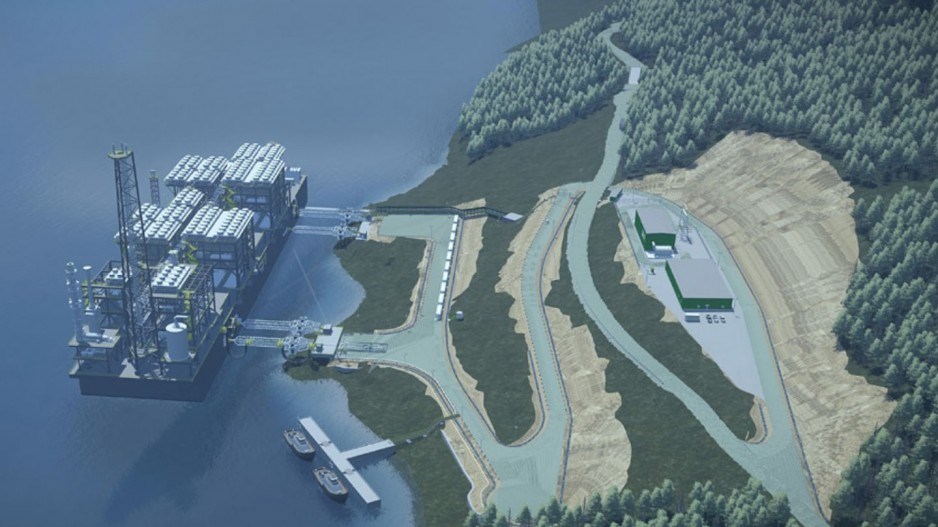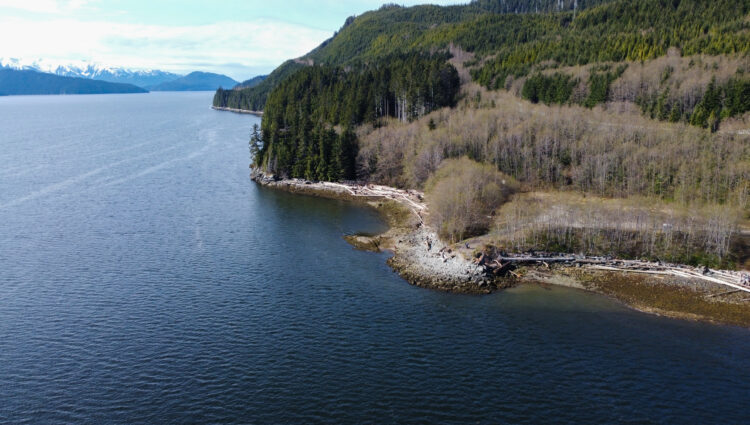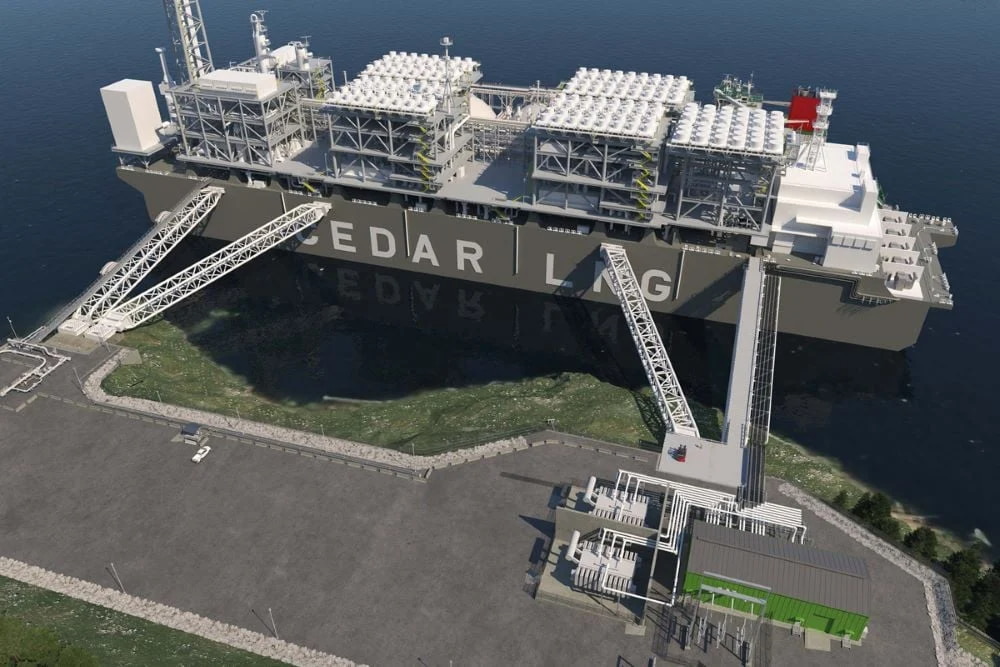Cedar LNG, a collaboration between the Haisla Nation and Pembina Pipeline Corporation, has reached significant milestones in its project development, culminating in the finalization of long-term commercial agreements and the issuance of a notice to proceed (NTP) to its engineering, procurement, and construction (EPC) contractors.
With the NTP, Samsung Heavy Industries and Black & Veatch can proceed with engineering, design finalization, and construction of Cedar LNG’s Floating Liquefied Natural Gas (FLNG) unit, which will eventually be transported from Korea to the Cedar LNG site in Haisla traditional territory.
Preparations for construction are underway, with early works scheduled to begin in May 2024, including activities such as tree clearing and rough grading at the proposed marine terminal near Kitimat. Financing arrangements are being secured, with a final investment decision (FID) expected by mid-2024 and an anticipated in-service date in late 2028.

Cedar LNG (Credits: Business in Vancouver)
Crystal Smith, Chief Councillor for Haisla Nation, expressed excitement about the project, highlighting Cedar LNG’s status as the world’s lowest carbon and first Indigenous majority-owned LNG facility. Long-term commercial agreements, including a 20-year take-or-pay fixed toll contract with ARC Resources, have been secured, ensuring a stable supply of sustainable Canadian natural gas for liquefaction at the Cedar LNG facility.
Pembina’s President and CEO, Scott Burrows, emphasized the project’s commitment to delivering an Indigenous-majority-owned LNG facility, contributing to the transition to a lower-carbon economy while benefiting various stakeholders, including the Haisla Nation and Canada as a whole.
Situated in Kitimat, British Columbia, within the Haisla Nation’s traditional territory, Cedar LNG is expected to provide economic and social benefits, support reconciliation efforts, and offer opportunities for Canadians. Terry Anderson, President and CEO of ARC, highlighted the project’s role in supplying low-cost Canadian energy to international markets, contributing to energy security and emissions reduction globally.

Cedar LNG (Credits: Cedarlng.com)
The project’s capital cost estimate stands at around $3.4 billion, with financing arrangements being pursued through a combination of asset-level debt financing and equity contributions. Regulatory approvals, including environmental assessments and permits, have been secured, and powered by BC Hydro, Cedar LNG aims to become one of the lowest emissions LNG facilities globally.
Pembina underscored Cedar LNG’s competitive advantage in supplying Asian markets, thanks to its low-cost natural gas feedstock from the Montney play and a shorter shipping route, offering off-takers geographic portfolio diversification and avoiding Panama Canal shipping delays. With its strategic positioning and sustainable practices, Cedar LNG is poised to make significant contributions to the LNG market while upholding environmental and cultural values.























